Director Abhiroop Basu gives an insight about his short film Gudgudi starring Rajshri Deshpande
Abhiroop Basu who is a prominent filmmaker, and award-winning Director and Screenwriter based out of Calcutta.
Published: Tuesday,Aug 20, 2024 10:01 AM GMT-06:00
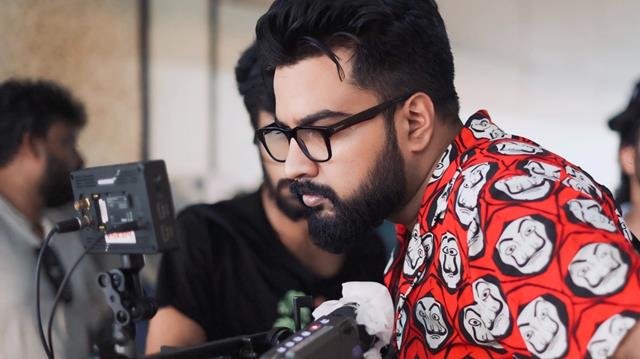
Abhiroop Basu who is a prominent filmmaker, and award-winning Director and Screenwriter based out of Calcutta. He has worked with some prominent names in industry like Pankaj Tripathi, Adil Hussain and Geetanjali Kulkarni. Ahead of the world premiere of his short film Gudgudi starring Rajshri Deshpande at the Odense Film Festival in Denmark, we catch up with Basu for a quick chat about the movie.
Here’s the excerpts from the interview
Many films about the Gujarat riots have focused on communal disharmony. What inspired you to take this unique approach and focus on the female perspective amidst such a tumultuous period?
In the culmination of 2-3 things, I stumbled upon a news article back in 2021 that detailed how a group of women used a unique method to survive riots without facing harm or death. Their resilience stemmed from the hunger to endure another day, valuing human life over material possessions.
This entire narrative calls for a cinematic interpretation, a story that must be shared with the world. However, the challenge lies in the limited content available to create a full-fledged film. Despite my research, I found it challenging to craft a film that doesn't focus on division but instead centers on hope, a beacon of light in the midst of darkness.
As I delved deeper, I uncovered another distressing truth - the tragic fate of 200 Hindu women who were subjected to unspeakable horrors of rape and murder, a harrowing reality often overlooked by the mainstream narrative. The staggering numbers caught me off guard, underscoring the gravity of the situation.
In the other facet of this complex tale, it became evident that women transcend religious boundaries; they are not defined by faith but by their shared humanity and physical existence. This profound realization reshaped my approach to storytelling, emphasizing the universal essence of womanhood beyond societal constructs.
During your research on the Gujarat riot did u come across any shocking incidents that compelled you to create this film?
The heart-wrenching account of a group in hiding unveils a mother's unimaginable agony as she witnesses her daughter being raped by multiple men in succession. The eleventh assailant's arrival marked the moment her daughter's body lay still, robbed of movement and voice, unable to cry out in protest.
The profound narrative delves into the depths of human endurance and the extremes individuals may endure to cling to life and persevere. In a narrative shift, the retelling of a man taking the life of another man unfolds, offering a new perspective on the complexities of survival, violence, and the stark realities of human behavior in dire circumstances.
Given the sensitive nature of the subject, how did you balance that,Were there any particular challenges or considerations in striking this balance?
The crux of the matter lies not in external obstacles but in the internal struggles faced by the characters. We aim for the film to avoid simplistic portrayals of good versus evil, steering clear of black-and-white narratives.
My vision for the film is to provoke thought and introspection, to pose challenging questions that linger with the audience. This, to me, is the essence of artistry - to strike a delicate balance between themes, to navigate the depths of the greatest tragedies while unearthing glimmers of hope amidst despair.
Above all, the film seeks to unite rather than divide, to transcend boundaries and foster empathy. By treading this path, we aspire to craft a narrative that resonates with the shared humanity of all, transcending divisive constructs.
The film brings forth powerful performances, What was your process in casting these roles, and how did you work with the actors to ensure the emotional depth and authenticity required for such a harro
I was fascinated by faces, not by names or past accomplishments. It was essential for the character to embody authenticity, to resonate with real-life figures rather than fictional personas. The core of the film required a solid foundation, someone who could bring depth and sincerity to the role.
In the process of selection, Rajshri emerged as the ideal candidate. Her impressive background in social work added a layer of authenticity and purpose to the project. I sought someone who could not only portray the character effectively but also become the face of the film, evoking empathy and connecting with audiences on a profound level.
How do you hope audiences, especially those who may not have a deep understanding of the Gujarat riots, will respond to Gudgudi?
It's a story of survival that transcends all boundaries - culture, time, race, and religion. The feedback I've received echoes this sentiment, recognizing its universal essence. Interestingly, amidst this global resonance, I've come to view it as a local tale with the power to resonate universally. The convergence of the local and the universal highlights how the language of sorrow knows no borders; it speaks a universal truth that resonates across the world.
What impact do you hope the film will have on public discourse about the riots and the often overlooked experiences of women during such conflicts?
Artistry has been twisted and molded, history has been reshaped. As future generations cast their gaze back, they witness the altering tides of creativity and the rewritten narratives of the past.
Your reaction
 Nice
Nice Awesome
Awesome Loved
Loved LOL
LOL OMG
OMG Cry
Cry Fail
Fail


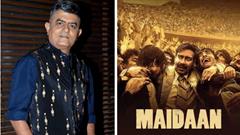
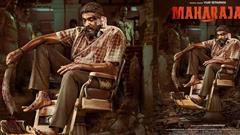


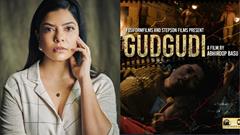



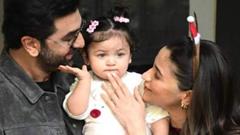


Comments (0)